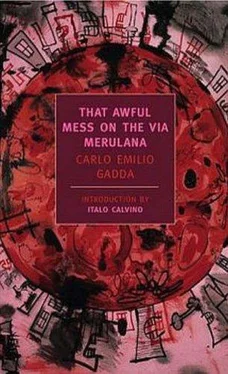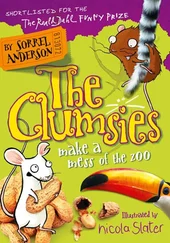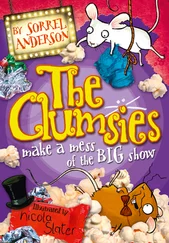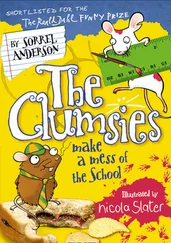"Ah, in the dining room? Near the buffet? Right where you cut her throat?" Ingravallo's face by now was white, furious. His eyes were those of an enemy.
"Cut her throat? What I'm talking about was two months ago, Doctor, still in January, the twenty-fifth of January, like I said. About three weeks before. . before you and I also met. You remember that Sunday, maybe a month ago, when you were at their house for dinner? well, about three weeks before that dinner. And besides, it's easy to check, my God. Why didn't I think of it before? Ask Ceccherelli, the jeweler in Campo Marzio. I went to get the damned jasper myself. He can testify to that. He had instructions from Liliana to give it to me, to me personally, the fob with the new stone with my initials on it, to replace that other one: she had told him to attach it to the chain for me himself, to her grandfather's chain," he pointed to it, on the desk, with his chin, "and she told him I'd bring it to him: me, in person. Liliana was so precise about everything; she had arranged it all: she had even showed him my picture. But Ceccherelli, when I went in, made me show him my identification, a license or something, he said: so I showed him my papers. He begged my pardon. But then I was bringing him the chain. What better identification could he want than that, after all. .?
"So it was twenty days before the twentieth of February, even twenty-five days, all right. How is it that you didn't mention a word of it to anybody? To your grandmother. To your aunt? Why didn't you show it to the family? Wedding presents, according to what you've been saying. Family jewels. Grandfather's gold: which was to go to the grandchildren. Why hide it then? And how come Balducci, this morning, was so taken by surprise? A memento of your own. . great-grandfather. . you can surely show it to your grandmother: who is his daughter, if I'm not mistaken."
"The daughter-in-law would be closer: Grandfather Valdarena, Grandfather Rutilio, was my father's grandfather; that is to say, if you follow me, the father of my grandfather": Don Ciccio looked at him furiously with the suspicion that Giuliano was pulling his leg: in his situation? "That's why I'm called Valdarena, too. My grandmother, grandmother Marietta, who brought me up, was the daughter-in-law of grandfather Rutilio."
"The daughter-in-law, I know, I know. Aha? Wait. The daughter-in-law? Your father's grandfather — is that what you said? Then the Signora Liliana was… your aunt?"
"No. Poor Liliana was my second cousin. A generation behind. That's why, perhaps, I liked her so! That's why she was so stupendous!" Don Ciccio listened, glumly, bituminous: "she was the daughter of Uncle Felice: Uncle Felice Valdarena, who was my father's uncle, the brother of my father's father. Liliana and my father were first cousins."
"I see, I see. And so you hid everything? Very carefully?
You were afraid maybe you'd have to share the stuff? share the gold chain.. with the poor? The way Amedeo II shared his Collar of the Annunziata?" {22}
"Vittorio Amedeo. ."
"Vittorio, I know, I know. With your poor relations? With some third cousin once removed?"
"Some newly hatched ugly duckling of the younger generation," sneered the accused.
"Or were you afraid that Signor Balducci, the minute he got off the train. . those presents, all that money. . might be kind of a weight on his stomach?"
"No, no!" said the accused, with a pleading voice. "She was the one, poor thing. She! I really wasn't thinking of hiding them: but she said to me: mind you, Giuliano, this is between us, our little harmless secret, a secret between cousins. . like in books! The secret of beauty: aren't we beautiful, the two of us? Of happiness, longed for and not fulfilled. Oh God, what am I saying! And she covered her face with her hands. You'll have happiness. And then the secret… let me think a minute… the secret of two good souls: who in a world a litttle better than this one. . well, would have created other souls. In this world, though, the way it is (Doctor, if you could have seen her! At that moment!), we have to go our separate ways, like the leaves when the wind tears them from the tree. My goodness! she said, what nonsense is coming out of my mouth, today of all days. This is a fine way to wish you all happiness. And you have to have the baby, Giuliano! Forgive me, forgive me. She was crying; then she smiled through her tears; in fact, she started to laugh. Happy, handsome — you have to make him, she said. And blond, mind you. Like you were, when you were a little tyke, laughing all the time, and wanting to wee-wee without turning your back, right in front of everybody!" Don Ciccio felt called upon to rummage among his papers for a moment, on the desk.
"She laughed, and she said to me: what would Remo say, when he comes back! If he knew I was giving presents to a young man! Even if he is my cousin, my handsome cousin who's going to be married. She laughed: who's marrying another girl, poor little me! No, no, you mustn't even tell your grandmother, poor old soul, or your mother, when you go to Bologna: you mustn't tell anybody. Swear! And I swore. ."
Don Ciccio was in a cold sweat. The whole story, theoretically, smelled like a fairy tale to him. But the young man's voice, his accents, those gestures, were the voice of truth. The world of the so-called verities, he philosophized, is merely a tissue of fairy tales: and bad dreams. So that only the mist of dreams and fairy tales can have the name of truth. And, on the poor leaves, it is a caressing ray of light.
With his toothless grin, with that latrine-like breath that distinguishes him, Common Sense was already mocking the story, wanting to laugh, swine-like, in Don Ciccio's face, spit the round no of the smart-ass at his mop of a police dog not yet named cavaliere. But Thought will not be prevented: he arrives first. You can't erase from the night the flash of an idea: of an idea, slightly dirty, then. . You can't repress the ancient Fescennine, banish from the old earth fable, its perennial Atellan: when aloft, happy and wicked, swirls the laughter from peoples and from the soul: just as you cannot charm away the individual aroma from thyme or horsemint or origanum: the sacred odors of the earth, of the barren mountain, in the wind. Up, up, from the packed cities, from the races, from every street corner, from the railings of every bridge: from the brown shores, and from the silvered, twisted people of the olives, which climb the mountains. When, over the houses and all the rooftops of mankind, a bluish air trembles a little, over their brims. When the warm dung heap smokes, above the frost, resurgent hopes: the fabling hopes of the truth! When every ridge dissolves, in the smoking plowed furrows! When the sharp descent of the billhook consecrates the olive tree to its fruit, and strips away falsehood. To Ingravallo, there came in a flash, between his grief and his contempt, that it was much more natural and much simpler, something very logical, since it really meant so much to Liliana, this baby, that instead of giving him, this handsome crook here (who was before him) the gold chains of the dead. . babies. . from chains of gold, babies don't come, surely… it was much quicker if she made him give her, instead, another little plaything, much more suited to the purpose. That story, really, smacked of lies. A lot of nonsense, all made up.
And then, no. . there wasn't a word of truth in it. Her husband, Balducci, was after all a husband: a great hulking husband. If the baby hadn't come out, so much the worse for him, that ugly bastard. It was no fault of men. He clenched his teeth, livid, collected his papers into the red folder. He had the prisoner taken back to his cell.
Читать дальше












